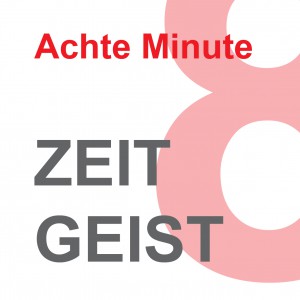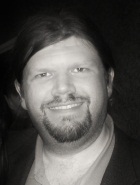ZEITGEIST – Debate is our practice. By Steve Llano (St. John’s University Debate Society, New York)
 In the ancient Japanese art of archery, kyudo, it is common for students to shoot the bow and arrow for many years without a target. In some cases, the student is not given the target until 10 or 20 years into their practice. They spend countless hours knocking arrows, drawing the bow, and firing seemingly without purpose.
In the ancient Japanese art of archery, kyudo, it is common for students to shoot the bow and arrow for many years without a target. In some cases, the student is not given the target until 10 or 20 years into their practice. They spend countless hours knocking arrows, drawing the bow, and firing seemingly without purpose.
It was the German philosophy professor Eugen Herrigel who first introduced the West to this strange combination of spirituality and discipline. Herrigel’s best-selling book, Zen and the Art of Archery details his experiences with a kyudo master during his visiting professorship to Tokyo University in the 1950s. Herrigel’s frustration with his Master’s seeming inability to teach anything to Herrigel is a nice metaphor for some of the issues that trouble me in our debating practices.
The book is a short one, but the implications are large for all of us. Herrigel asks why his Master has not offered much direct advice until near the end of training. The Master replies, “because you were not ready for it.” For the Master, teaching too soon is more than just wasted breath – it is harmful to the development of good practice. This is why the target – supposedly motivating and helpful to the refinement of practice – ruins the practice. For the goal of kyudo is not to hit the target, but to hit yourself, with yourself, fired by yourself. The opponent, the challenge, and the goal are indistinguishable from the self.
How does our practice compare?
The first thing displayed to those who wander into our training halls is a target – bold and beautiful, we all hope and work toward hitting at least the yellow, if not red. It haunts our dreams and makes us smile as it crosses our minds. We know we are going to make it to finals. We know victory is assured. Just concentrate on the red. Concentrate on the 1.
Every year, we board a rudderless boat, and are so excited for the journey. We have no destination charted, but we are definitely going to get there. Oh yes, victory is assured for everyone who boards the boat. Just keep the target in mind, and success will follow. Keep your eye on that target. When you can’t clearly see it, associate with those who have hit the bullseye, for they have great secrets they will transmit to you. They know the drift of the boat.
The trouble is, if the target is in mind, where is mind? What happens to mind if the target is all that’s on your mind? If mind is filled with target, where do we put the debater?
These questions, whether you attend to them directly or not, will be answered by your practice. The careless by-products of such approach have potential to efface the benefits of our art. Obsessed with the target, one forgets the self. Relationship of the self to the arrow is forgotten. Gone is the method; results stand alone. Others are our obstacles. And from these results we procure our teachers, for who else would know how to be a Master but those who hit the target? All they can do is make the target’s colors deeper, more attractive, and brighter. The answer we receive is dominated by the target.
We become the objects of debate, dominated by a one-dimensional practice that emanates from the utterances of everyone, and, simultaneously, from no clear center, no authority. As the target grows brighter, we diminish. The people are only as bright as the color that rubs off on them. The target decides the merit of ideas instead of minds. Instead of running our tournaments, debate, as a discourse, begins running us.
In New York City, we are crafting something different. We fire at ourselves. The practitioner should decide the course of the arrow, not the target. Removing the target removes the barriers to competition. Nobody wants a debate tournament without competition. It is the foundation of everything good that comes from debating. But competition is not a means to an end. It is an end. It is the opportunity to co-craft a text with other clever human beings that can then be reflected upon, discussed, and criticized. It is hitting the self with the self. As the Masters say, “One arrow, one life.” Perhaps our motto is, “One argument, one life.”
In the United States, we have a history of professional debate coaching. Since the early 20th century, Universities have been expected to assign a faculty member to the position of debate director or debate coach. This system is now highly specialized, with many current debate directors having worked as an assistant debate coach through postgraduate as a way of affording higher education. This system has many benefits, as you can imagine, but it also has dangers. The same dangers of “sportificiation” that face the international circuit can become entrenched by the debate director whose full time employment places them working within the debate universe for 10, 20 or even 30 years.
I am obsessed with one question – “What can the professional coaching system of the United States bring to global debating?” I am not satisfied with drills and skills as the sum total. I am interested in the concepts of perspective, value, and attitude. Transforming debate from sportified game – “target practice” – into lifelong discipline is my practice. In the three debating programs I have helped to establish over the past four years, I have my hand on the rudder. No target but the self. There’s nothing to aim at, and everything to aim for. Nothing to do but practice.
And my practice is our practice. Our practice is debate. Where is your aim? A target, a ballot, or a mirror? From across the Atlantic this rising New York circuit seeks more attention to the question of debate as it is instead of its scorecard.
Stephen M. Llano, Ph.D. is Assistant Professor of Rhetoric and Director of Debate at St. John’s University in Queens, New York. He studies rhetorical theory, argumentation theory, and the intersection of Eastern philosophy and debate pedagogy. He has coached debate in the United States for 17 years at both the High School and University level. He holds a Ph.D. in Communication from the University of Pittsburgh, and regularly travels worldwide to lecture and teach on debating.
Read more zen mastery on Steve’s Blog:







Spot on. The more I read the more I could see the truth, in my life and in others’. I have seen myself struggle for the target for too long, when I would have been much better off struggling for myself. Thank you for your wonderful insight into the motivations of one’s self.
Thank you, Steve, for this very good article! It touches something that I have thought about a bit recently, both related to my debating and my life apart from that.